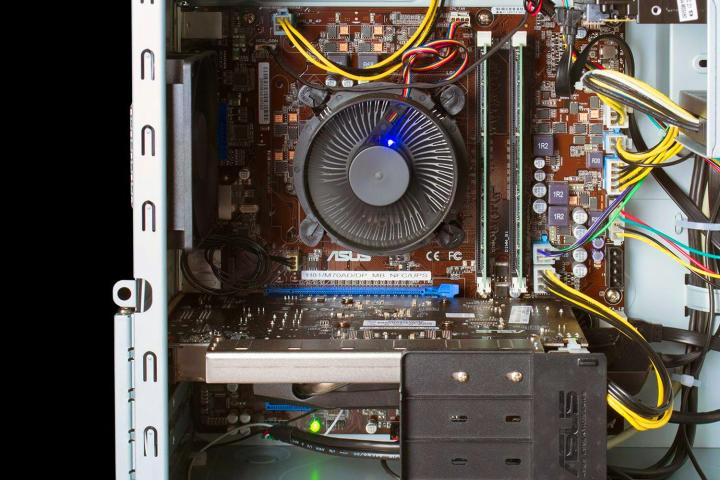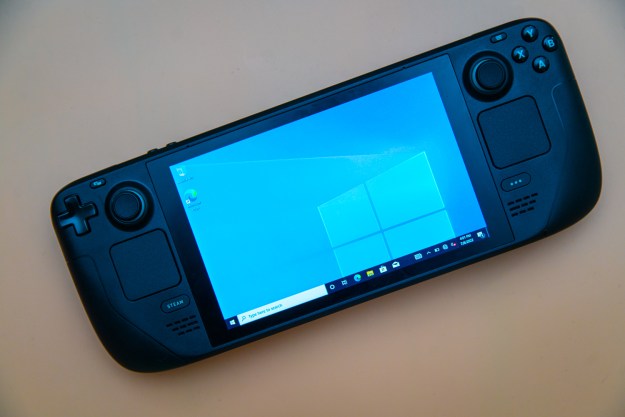
Kicks in faster, lasts longer
It’s already been a crazy year for new product releases, and when that happens, the user wins.
Let’s talk Intel for a second, just as an example. Broadwell chips launched in June, and Skylake chips are already heading out to manufacturers for inclusion in systems starting later this year. That means the Haswell-E chips from late last year, which are still relevant performance-wise, will start to see discounts to make room on the shelves for the next-gen CPUs.
A wide selection of capable graphics cards for 1080p gaming are available for $200 or less
It’s also been a banner year for graphics cards, both original and rebranded. Both AMD and Nvidia have been releasing cards at a rapid click all the way down their performance tiers, which will again pay off with discounts for consumers. The GTX 980, a card that hit the market in September of 2014, is readily available for less than $500. Gamers with a 1080p monitor can choose from a wide selection of capable cards that sell around $200, or less.
And every component you buy now is going to last a lot longer than it used to. It’s not just an issue of durability. The performance gains that are seen with new parts just aren’t what they used to be. A 10 or 15-percent performance gain is a big deal, which means you’re “outdated” card or CPU may not be far behind that newly released component.
Spoiled for choice
Beyond the differences between AMD and Intel, there’s more than one way to skin a hard a drive. No matter what your budget or computing needs, you have options, and a lot of them. Even if you have lofty gaming goals, the market is packed with different components and possible configurations.
A lot of builders who are working on a tight budget strive to maximize the efficiency of every part that goes into the machine. For just over $100, you can pick up an Intel Core i3-4160, a dual-core chip with Hyper-Threading that won’t set any speed records, but will set itself apart from the other budget processors. With that as a base, you can build a basic system for less than $500. It’ll even handle casual games.
If you’re trying to build around a specific component, or to hit the required specs for a program or game, it’s a good time for that too. You want to make sure to avoid picking individual parts that create bottlenecks and compromise your whole system’s performance, but with a little research that shouldn’t be too hard.
Of course, you can always pull out all the stops, raise your middle finger to your bank account, and stock your machine to the nines with multiple graphics cards, liquid cooled everything, and a high-end case. It’s going to cost you, but the result is a machine that will play games at 4K resolution with the graphical settings turned all the way up.
You’ll also save a little over one hundred dollars on your build because you don’t have to buy Windows. Instead, you can save money by opting into the Windows 10 Insider Preview.
Figuring out which part is the right one for you isn’t always easy, but thankfully there are thousands of users with hundreds of components and years of experience out there who want to help.
Extensive resources
Whether this is your first build or you’re a professional system assembler, you can’t do it all on your own. The depth of resources available on the subject is mind-blowing, and chances are if you have a question, or need two parts compared, someone has already done it in way more detail than you could’ve ever hoped.
That also means that the actual assembly of the computer is easier, not just because of the available tutorials, but also because the hardware manufacturers have made it easier. You don’t have to worry about frying your motherboard with the wrong RAM, or by wiring something up wrong. At this point, building a computer is mostly a plug and play process, and even installing drivers is easier than it used to be.
At this point, building a computer is mostly a plug and play process
If you don’t have any idea where to start or which parts to build around, Logical Increments is a great source of inspiration. It suggests different tiers of components for building a PC, and their handy chart can help prevent bottlenecks.
Once you’ve figured out what the important parts of your system are, you can use PCPartPicker to plan out everything else. Select a processor, and it will show you compatible motherboards, RAM, and a case that everything fits into. It even helps calculate wattage and suggest a power supply rating.
Finally, if you’ve got a weird question or comparison and you have nowhere else to turn, the Tom’s Hardware forums are deep, and dense with experts and information on any subject you could possibly want to know more about. Everyone has their own opinion when it comes to building a computer, and it’s great to hear a lot of opinions. At the end of the day, though, you have to make a decision that works for you, and meets both your goals and budget.
The best year yet
Building a computer has always been economical, and depending on how familiar you are with the process, a lot of fun. It gets better every year, and we’re always telling people that building a computer is preferable to buying one off the shelf for a number of reasons.
The stream of constant product releases means prices on “older” models are constantly dropping. It also means that each new release is only an incremental one, and the effective lifetime of other components is longer as a result. That’s not just at the top end either, there are great new options for any budget range, and a wealth of choices for building the right computer for you. You’re not in it alone, and there are vast resources for learning to get everything planned and put together.
While this year may be the best for building your own computer yet, it seems we’re on a trend that doesn’t show any signs of slowing down. There are more new releases every year, the performance gap between them nears each time. Unless there’s a huge advance in component creation technology, it’s likely next year will be even better.
Editors' Recommendations
- Hyte made me fall in love with my gaming PC all over again
- As a lifelong PC gamer, these are the apps I couldn’t live without
- OneDrive is ruining my PC gaming setup
- How Hyte is tying your gaming PC together with a single cable
- The best PC hardware we saw at CES 2024



